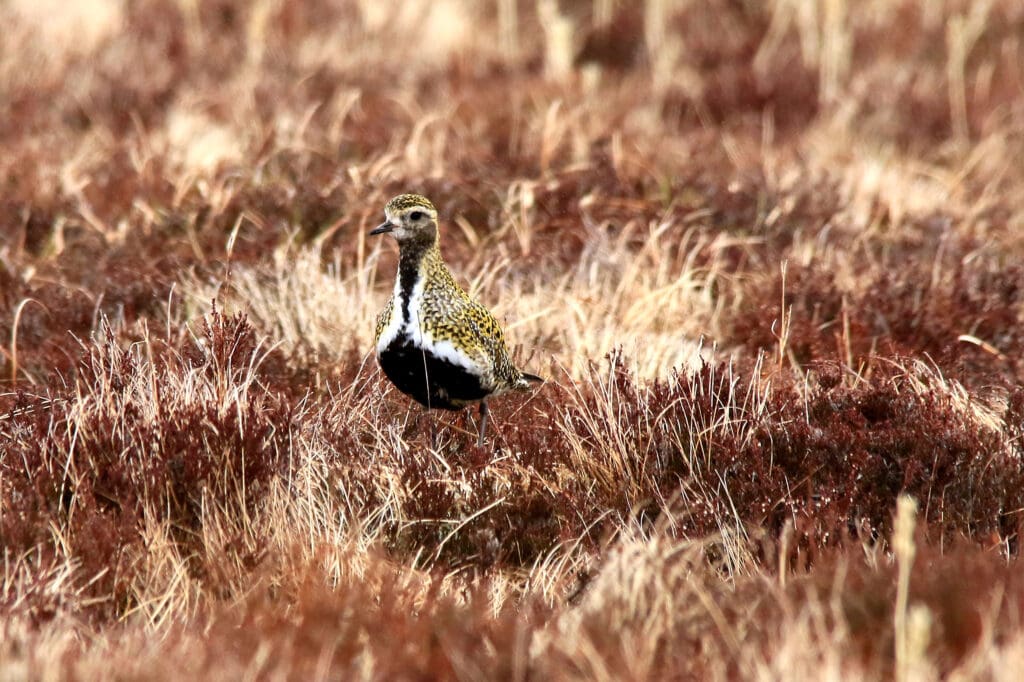Nature Networks fund rewards
Three of the RSPB’s initiatives have been awarded significant amounts of money by Wales’ Nature Networks Fund. The Black Grouse Recovery Project received £244,000 for a major conservation plan for north-east Wales’ uplands.
The Changing Tides project received £212,794, enabling the co-design of a handbook on coastal adaptation in the Dyfi area. And £180,000 will enable the Elan Valley Partnership Project to survey over 2,000ha of peatland to prioritise areas for restoration.
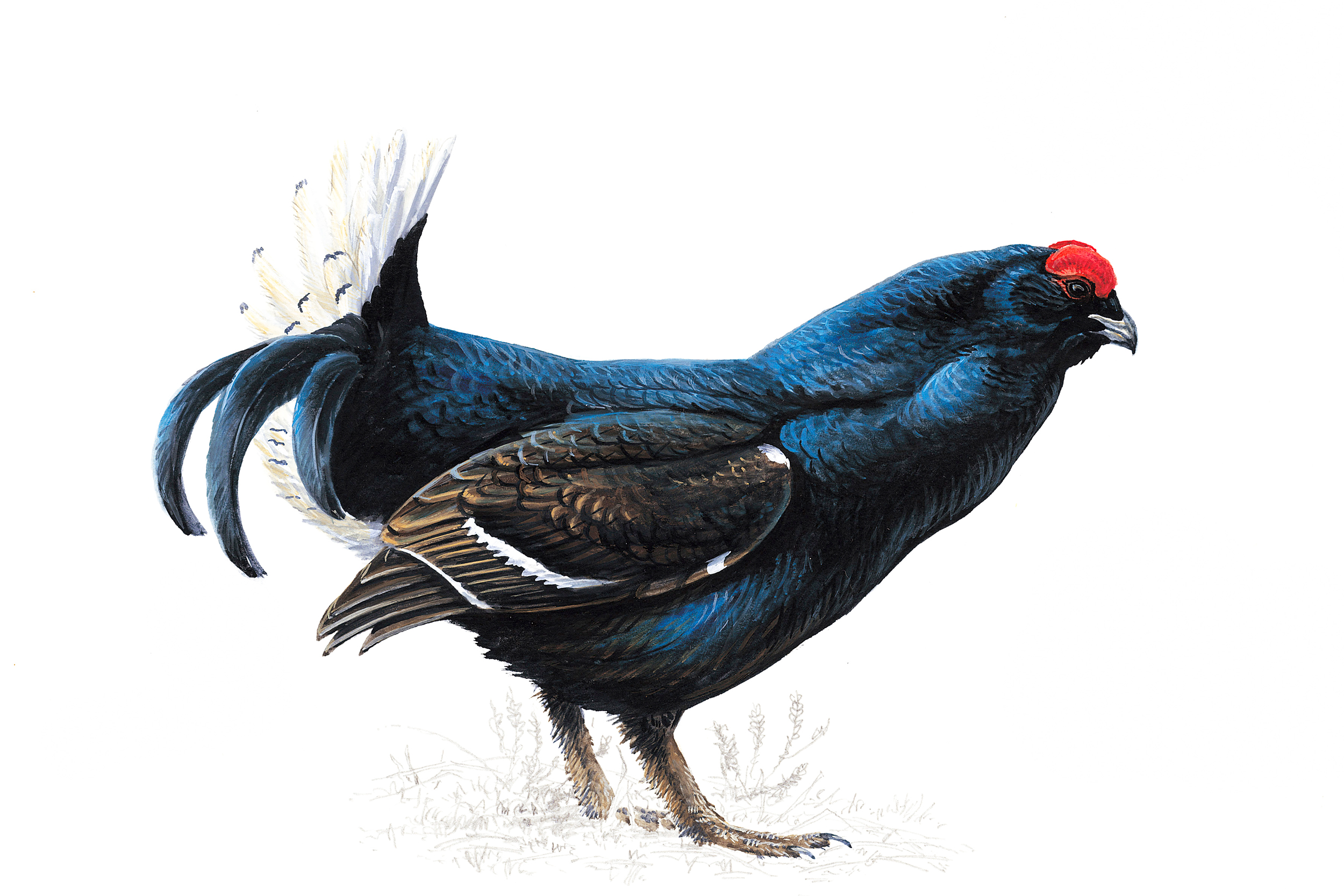
Black Grouse. Photo: Mike Langman. (rspb-images.com)
Peatbogs for puffer jackets
A new project is testing commercial cultivation of Typha Latifolia (or Reedmace) at RSPB Greylake to provide a commercially viable way to conserve the peat there – and potentially to yield natural insulation filling for puffer jackets.
The peat bogs of the Somerset Levels and Moors accumulated vast quantities of carbon before they were drained to create agricultural land from the early 19th century.
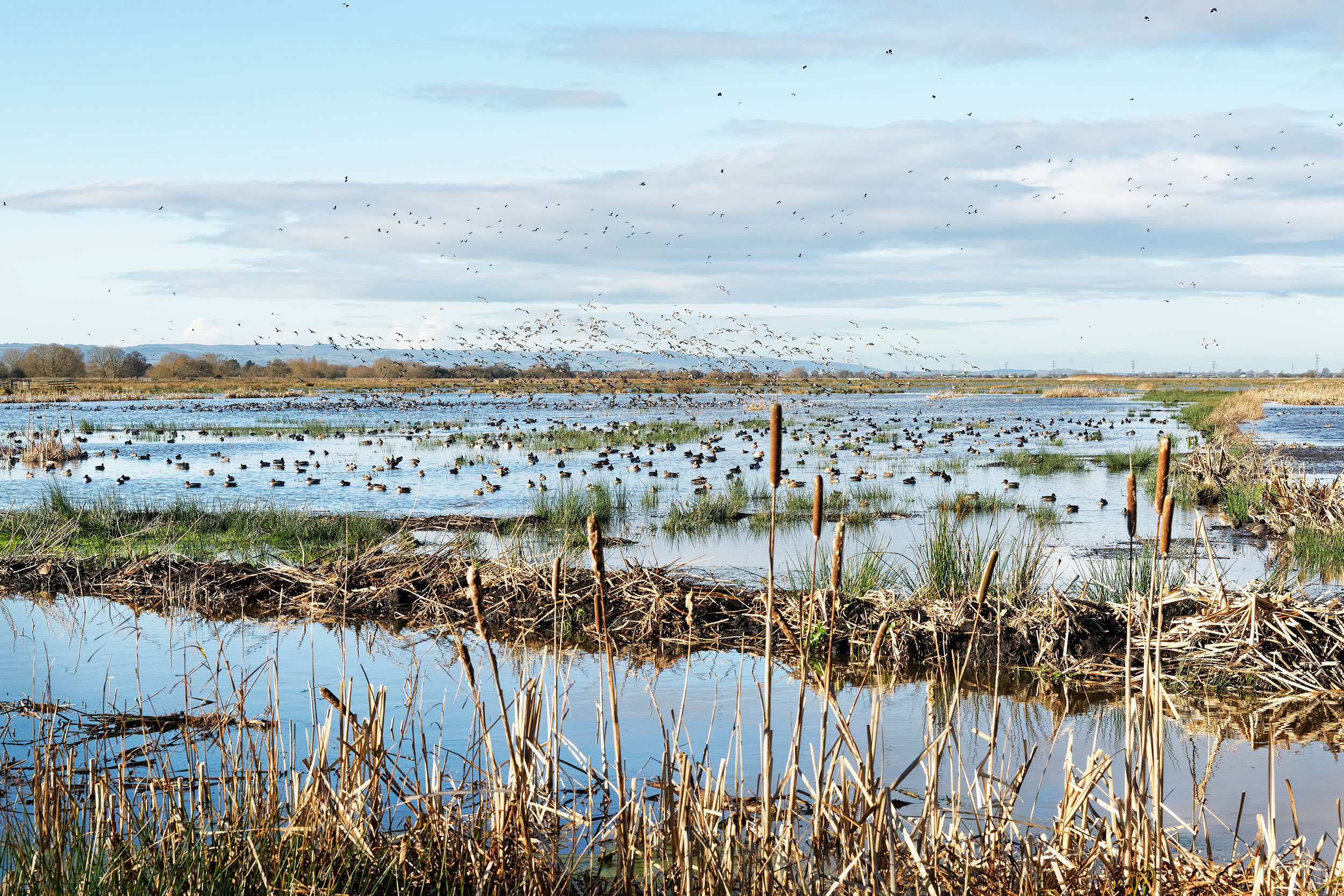
Bullrushes. Photo: Nick Upton.
Nature-friendly farming Wales
RSPB’s Lake Vyrnwy and Ynys-hir teams have joined forces to coordinate livestock grazing across these two contrasting reserves – one valued for its mosaic of upland habitats, the other for its lowland pasture and saltmarsh.
The aim is to improve conservation outcomes for priority habitats and species by adjusting grazing location, timing and intensity.
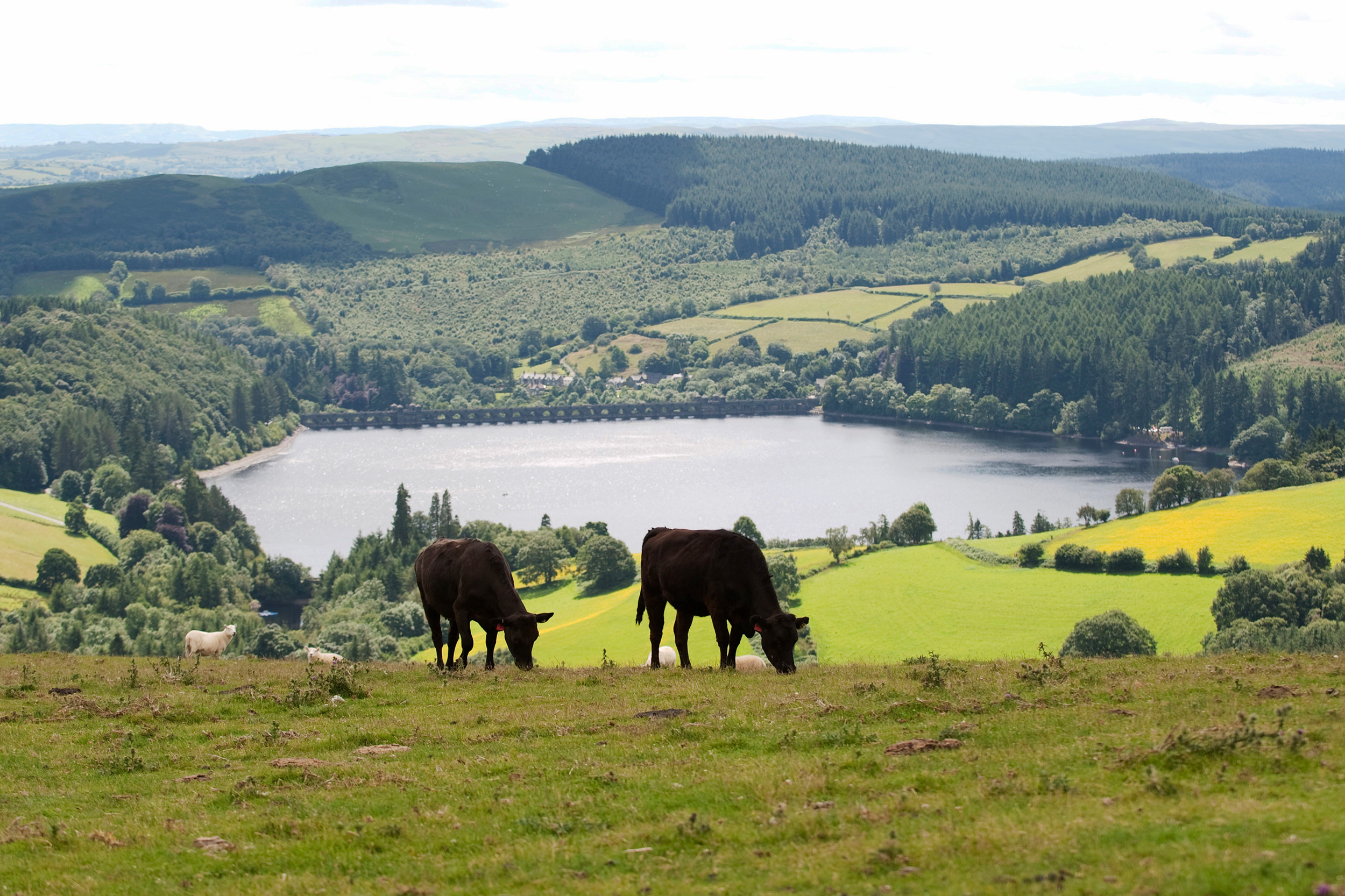
Cattle enjoying the grass near RSPB Lake Vyrnwy. Photo: Eleanor Bentall. (rspb-images.com)
Saltmarsh carbon capture
New monitoring systems have been installed in and around RSPB nature reserves to measure and compare how much carbon is captured from the atmosphere and stored in natural and restored saltmarsh.
In August, two flux tower systems were installed in the Ribble Estuary in Lancashire, in and around RSPB Hesketh Out Marsh. Two more were installed at Freiston Shore, Lincolnshire, in December, with more to be placed on RSPB nature reserves.
This project, a collaboration between the RSPB, the Environment Agency, WWF, Natural England and UK Centre for Ecology & Hydrology, will explore the role that saltmarsh could play in mitigating climate change by removing carbon emissions from the atmosphere.
Installing monitoring systems to see how much carbon is captured from the atmosphere and stored in natural and restored saltmarsh. Video: RSPB in partnership with the Environment Agency and the UK Centre for Ecology and Hydrology. Music: Bensound.com
Groundwork placements success
The first year of the New to Nature programme offered life-changing paid placements at organisations including the RSPB to people who might not normally have had access to an environmental career.
Participant Laura Kerr said: “This was the first job I’ve had where my neurodiversity was actually an asset and not something that I had to cover up.”
Read about fellow participant Adam’s placement at RSPB Sandwell Valley as Community and Visitor Engagement Assistant at groundwork.org.uk
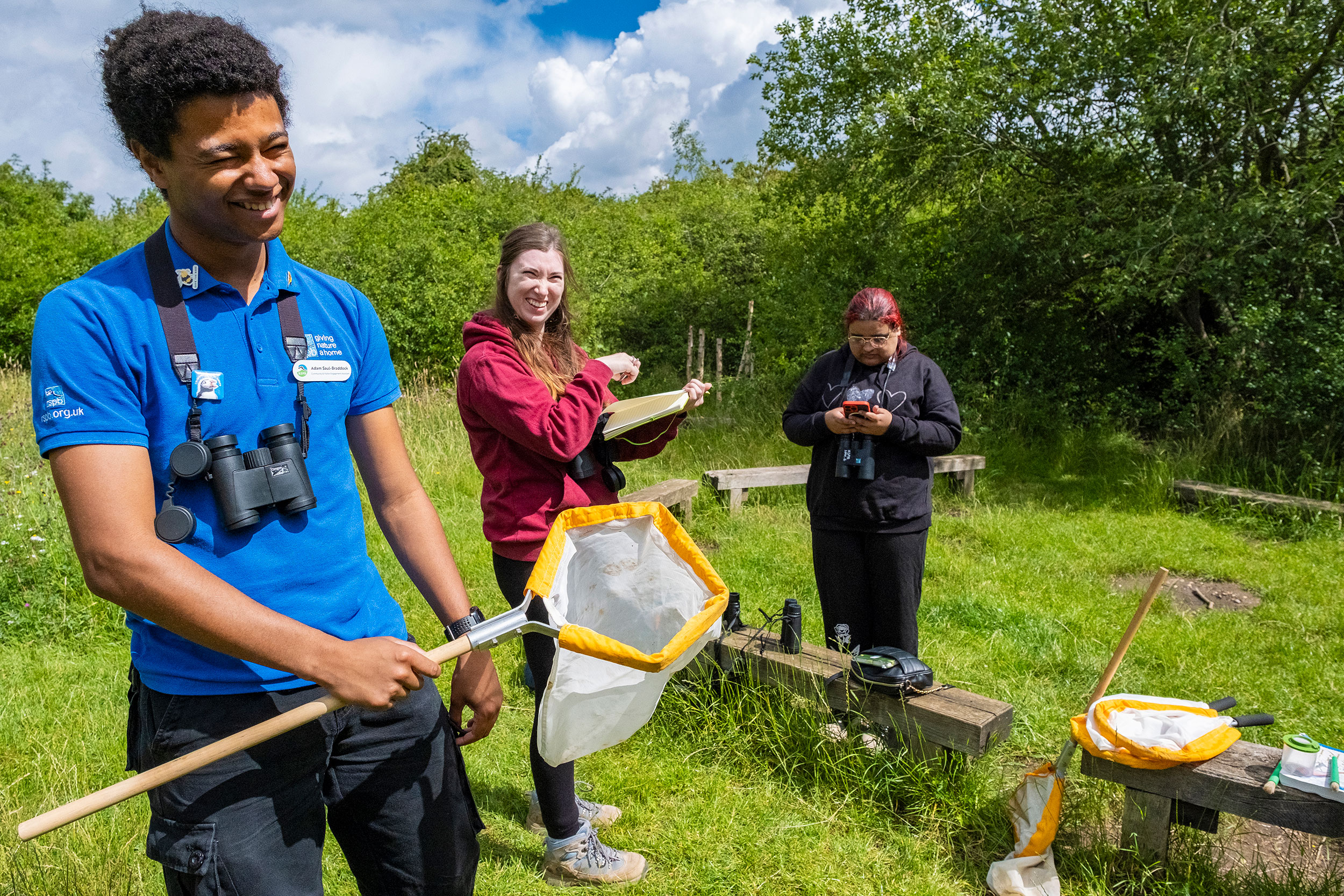
Adam, one of the New to Nature participants. Photo: Sam Turley (rspb-images.com)
Curlew award for Cumbrian farmers
Ian Bell and Rebecca Dickens, tenant farmers at RSPB Geltsdale, won an award for their efforts to protect and support endangered Curlews and other wading birds.
They received the Farmland Curlew Award, established by the Yorkshire Agricultural Society and Nidderdale Area of Outstanding Natural Beauty, at the Great Yorkshire Show last summer.
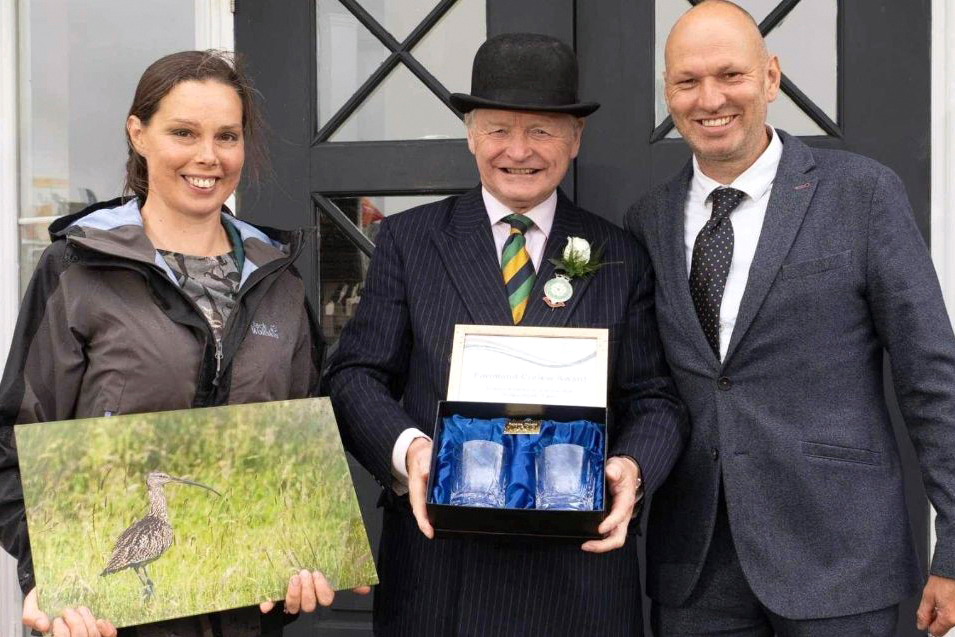
The Farmland Curlew Award.
Enhanced Loughlin’s Marsh wetland
Major habitat development work at our Berney Marshes and Breydon Water reserve is benefiting breeding birds such as Redshanks, Lapwings and Avocets.
The 38.5ha Loughlin’s Marsh was bought by the RSPB in 2015 to expand the adjacent nature reserve at Berney Marshes. In 2023, the work, in partnership with the Broads International Drainage Board, extended the ditch network and created new habitats, including islands, pools and lagoons. This provided important feeding, breeding and roosting sites for wetland birds.
More than 10,000 waders and ducks were recorded using the new habitats this winter.
The project was backed by £1.3m in funding from National Highways.
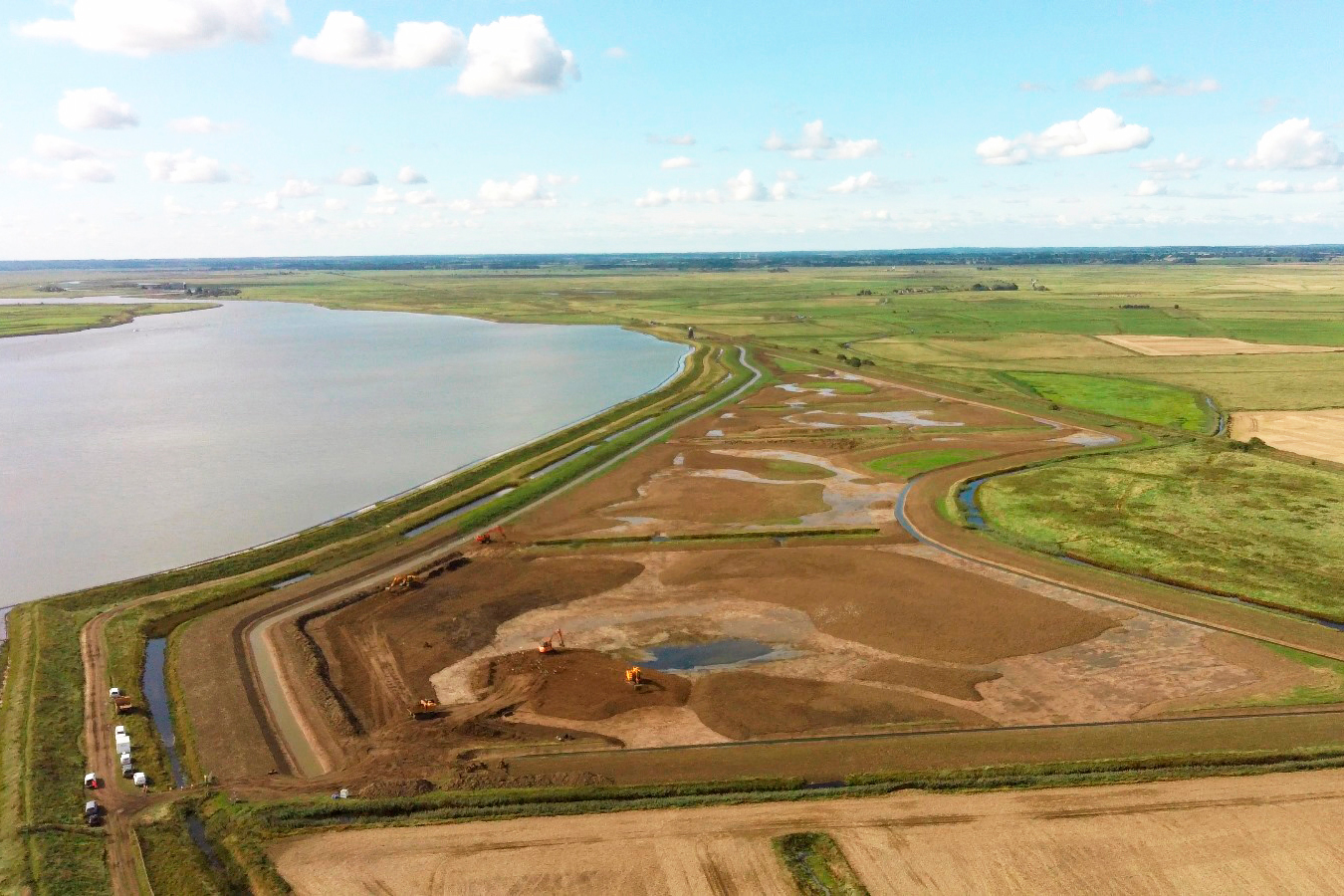
Loughlin’s Marsh wetland. Photo: RSPB
Our new patron, HM The King
We are very honoured to share that His Majesty, The King will be our new patron, continuing the legacy of the late Queen in her support for the RSPB.
An active and inspiring champion for nature and climate, King Charles III announced the news following a review of the royal patronages conducted by the Royal Household after his ascension to the throne.
The King’s patronage comes at a critical time for nature. The RSPB’s chief executive, Beccy Speight, said, “His Majesty, The King has long been an advocate for conservation and the need to protect and restore our natural world. We are looking forward to the support of His Majesty in promoting the need to protect and restore both our wildlife and wild spaces.”
Nature recovery goals in Wales
Earlier this year, the Welsh Government published its White Paper for a bill on environmental principles, governance and nature recovery targets.
Following years of campaigning, and the consultation period ending 30 April, such a ‘Nature Positive’ bill is urgently needed to address the gap in environmental protection and governance that exists since the UK left the EU, and to embed nature recovery goals in law. See more at Climate Cymru.
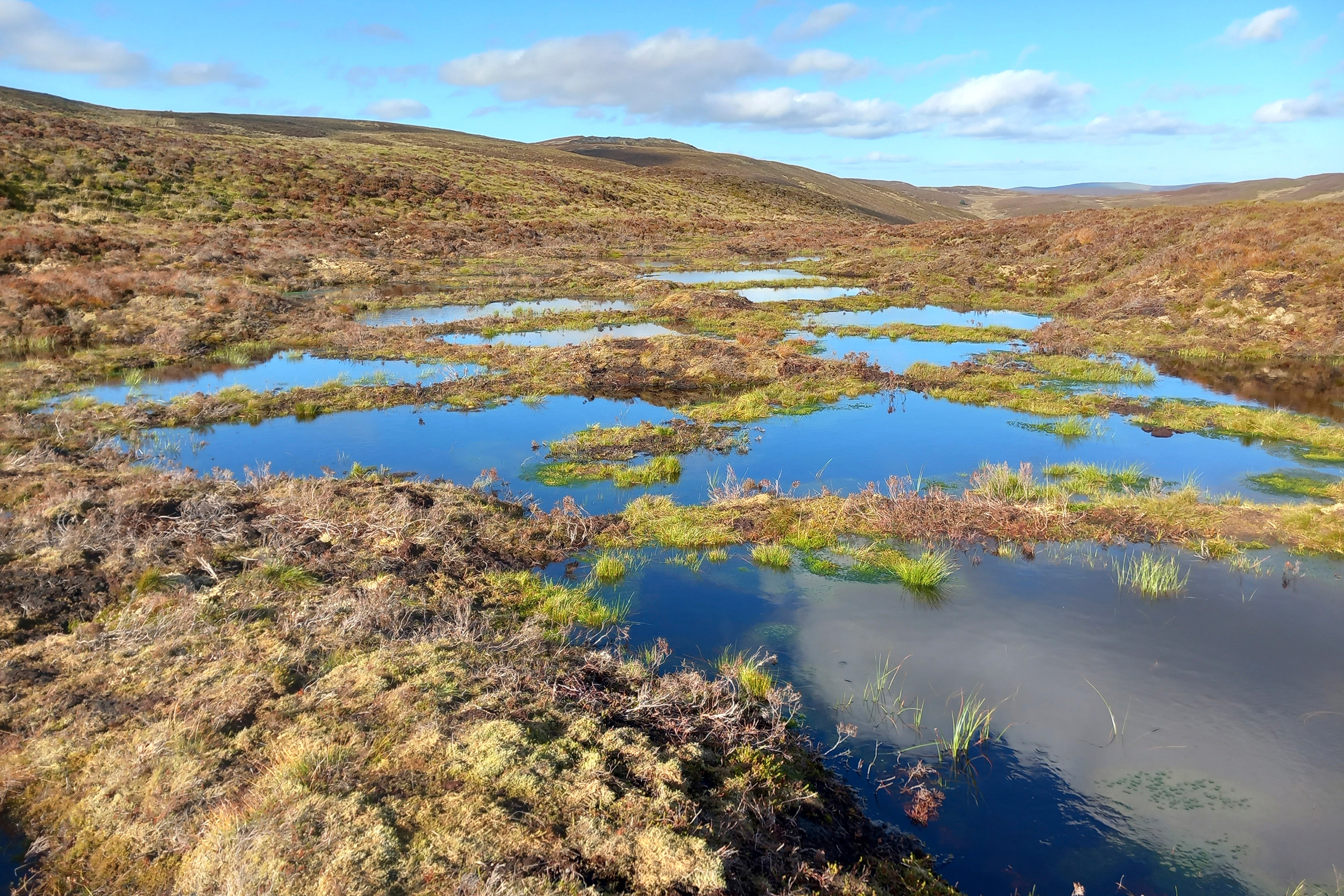
Rewetted area at RSPB Lake Vyrnwy. Photo: Alex Falkington (rspb-images.com)
Nature-writing prize partnership
We’re proud to become a partner of The Wainwright Prize, which recognises the best writing on the subject of nature and conservation for adults and children, inspiring us all to appreciate the beauty in the natural world.
Created in 2013 in the name of fellwalker Alfred Wainwright, the Prize celebrates the remarkable natural world and the people passionately advocating for our planet’s future.
Alex Try, RSPB Director of Strategic Communications and a judge for the conservation category, said: “Art and literature are fundamental for shaping conversations and debates in society, and I’m so pleased to be supporting authors who are at the forefront of the nature and climate emergencies.”
View the Wainwright Prize longlist here.
Big win to save migratory birds
Portugal’s Tagus estuary, a crucial site for 300,000 migratory birds, has been saved from the threat of a proposed new airport at nearby Montijo.
The development would have had serious repercussions on birds, including the Black-tailed Godwits which breed in the UK and use the estuary in winter.
The RSPB, working with BirdLife partner SPEA and other organisations, successfully challenged the proposal, which was officially ruled out in May by the Prime Minister of Portugal.
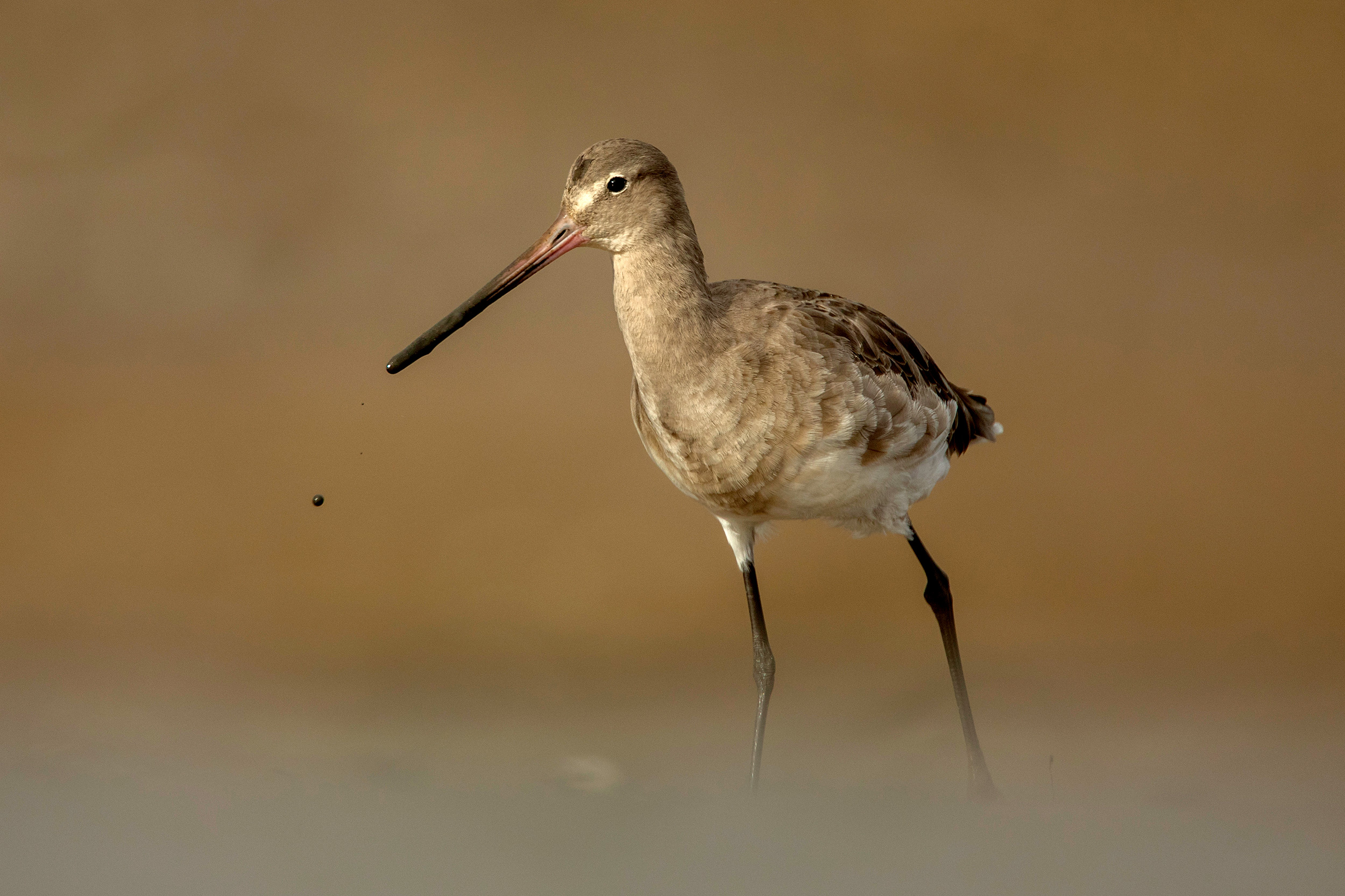
Black-tailed Godwit. Photo: Ben Andrew (rspb-images.com)
Testing drones for conservation
RSPB researchers are trialling the use of drone-mounted thermal cameras for locating the nests of ground-nesting birds in order to monitor and protect them.
Finding Curlew and Snipe nests by observation can be time consuming or nigh-on impossible. We’re testing how well heat-sensitive cameras carried by drones detect fake ‘nests’ – actually heatable hand-warmers – on the Somerset Levels and Moors, to see whether they can distinguish the warmth of a bird from cool grass in the early morning.
The technology has already successfully found Curlew nests that were not identified by observation.
The work, funded by Natural England through the Nature Recovery Project partnership, aims to establish a monitoring protocol that could help some of the UK’s most special species.
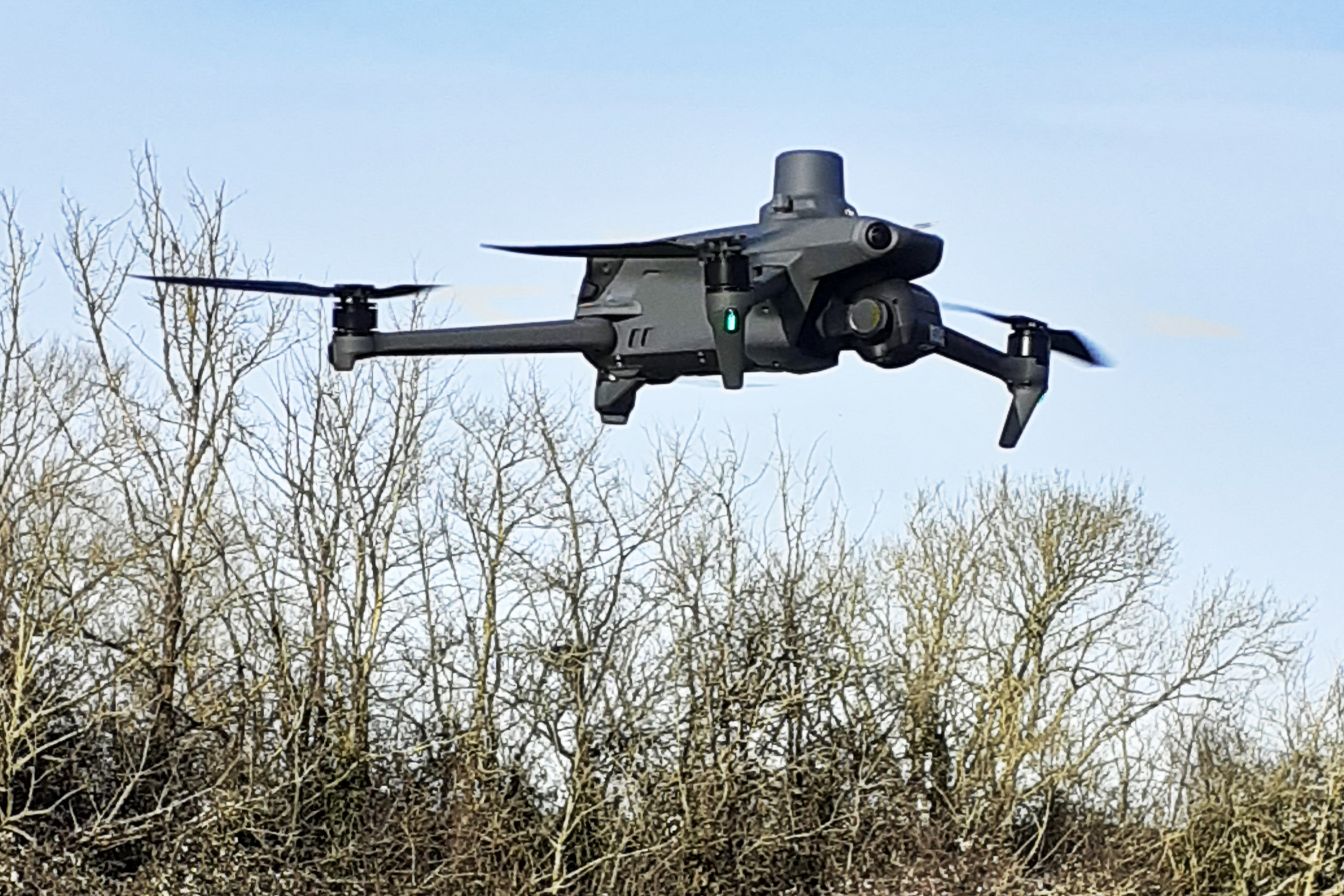
Thermal drone nest trial.
You might also like
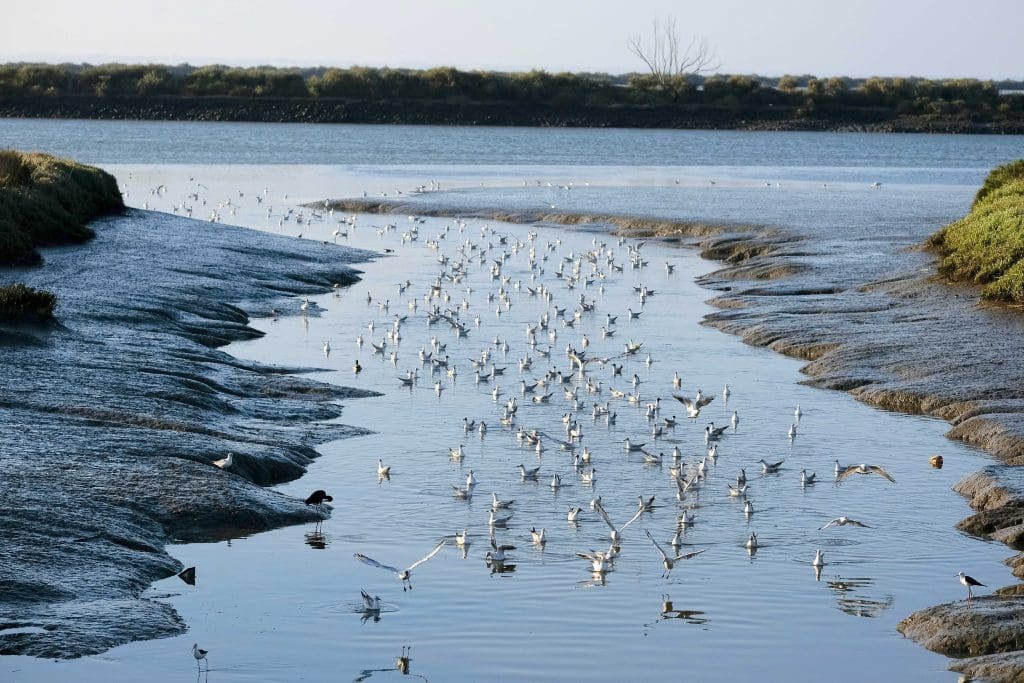
Protecting overseas wetlands

Your photos – summer/autumn 2024
